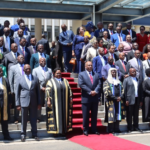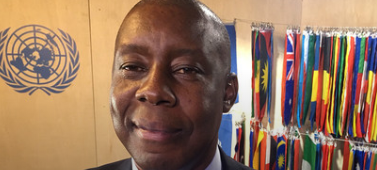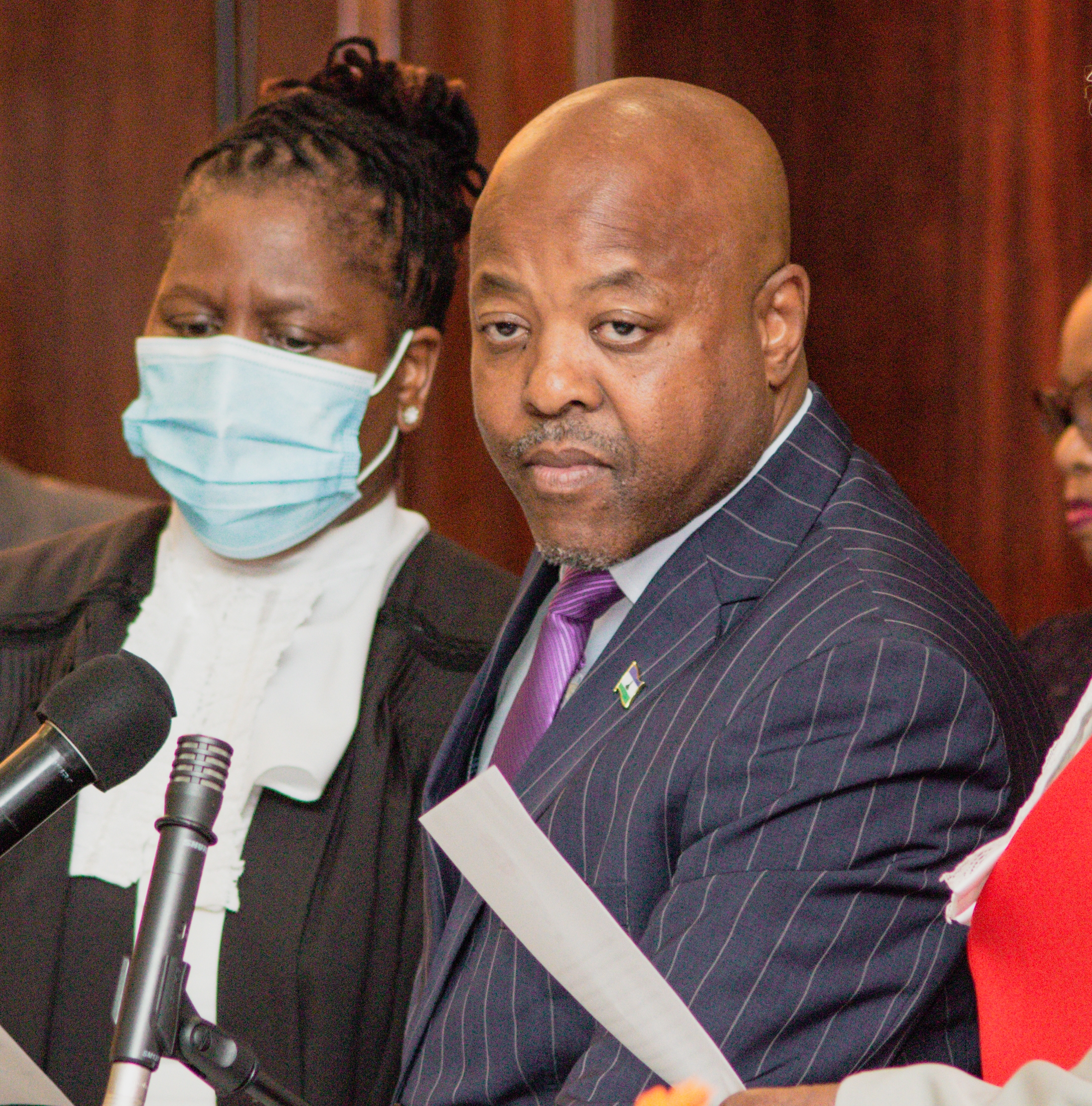Theko Tlebere
Lesotho urgently requires a revitalisation of its political scene, but a troubling stigma surrounding political service is stifling the potential of fresh talent. My thoughts today were sparked by an article shared by my brother Kananelo Boloetse on his LinkedIn page, which detailed conversations he had with Lesotho’s current National Assembly Speaker, Mr. Tlohang Sekhamane.
What caught my attention was that I had previously dismissed Mr. Sekhamane’s role in politics, even wishing for him to return to the corporate sector. However, the conversation Mr Sekhamane had with this friend of mine earlier this year highlighted a prevalent issue that must be addressed.
Initially, I had intended to discuss my political experiences, but I later realised that the obstacles faced by young people upon entering politics are beyond personal aspirations, as they are not only discouraging but also detrimental to Lesotho’s democracy. Therefore, today’s article will focus on how we, as young people of Africa, can overcome this challenge.
For those who may have missed my friend’s article, I would like to emphasise one of the key issues raised in their discussion with Mr. Sekhamane regarding the reluctance of the corporate world to employ former politicians.
Mr. Sekhamane mentioned, “If you engage in politics and then serve in Parliament, regardless of how young and vibrant you may be upon completing your term, no corporation will be willing to hire you.” This harsh reality unveils a larger issue: the entrenched stigma associated with politics in our society.
Regrettably, this stigma doesn’t stop there; even young individuals who hold political positions encounter the same challenges if they decide to transition into corporate or public service roles.
Why do our politics carry so much stigma for young people? The stigma surrounding politics stems from the perception that politicians are linked to corruption, inefficiency, and self-interest. Although these stereotypes are often fueled by a few individuals, they unfairly tarnish the entire field.
In Lesotho, political discussions are frequently framed as fundamentally adversarial, leaving little space for nuanced dialogues about governance, policy, and national development. Consequently, politics is not seen as a noble pursuit or a form of public service; instead, it is viewed as a deceitful game to be avoided at all costs.
This perception is particularly detrimental to young, talented, and energetic individuals like myself who still have much to offer. These individuals may aspire to contribute to the country’s progress, but the stigma dissuades them from entering the political sphere.
There’s a concern that by doing so, they would not only encounter public scrutiny but also risk being marginalised by the corporate sector after leaving politics. In my personal experience, I have witnessed skilled young professionals, brimming with novel ideas, express reluctance to engage in politics due to this fear. They are anxious that pursuing a political career could spell the end of their professional journey in other sectors if they choose to make a transition.
I remember a close friend who, after a few years of active involvement in political youth movements, opted to step back. She confided in me, “I am eager to contribute to politics, but what will become of me if I decide to return to corporate work? No one will hire me after this.”
But Is This the Way Forward for Lesotho? Erecting barriers that deter youthful, innovative minds from participating in politics is not conducive to building a nation that is dynamic, inclusive, and reflective of the people’s aspirations.
Although there are often appeals for increased youth involvement in politics, these calls remain hollow without the necessary infrastructure or societal backing to ensure that young individuals can engage in politics without jeopardising their futures.
I have encountered numerous young professionals in Lesotho who possess a profound comprehension of national development, policy, and economics, yet they remain on the sidelines because they perceive politics as an unsustainable career path. These are individuals who could bring inventive solutions to the forefront, challenge obsolete policies, and provide much-needed fresh perspectives. However, the stigma keeps them at bay.
The exclusion of young people from politics also carries significant repercussions for democracy. If only a small cohort of older, entrenched elites continue to dominate the political landscape, we lose out on the diversity of opinions and experiences that young people bring.
I have seen firsthand how youth movements across the continent are propelling change in technology, entrepreneurship, and activism. However, in politics, the doors remain shut.
When the corporate world shuts its doors to former politicians or their associates, it sends a concerning message about how we value political service. It implies that political experience is seen as a disadvantage rather than an asset.
This undermines the concept of public service, dissuading those genuinely interested in making a positive impact through political involvement. I’ve spoken with various professionals who left politics only to discover they were excluded from corporate opportunities.
A former Parliament member once shared his challenges after his term: “I thought my governance experience would benefit me in the private sector, but every door I tried was shut tight. No one wanted to be associated with a ‘former politician’.” His story is not unique.
The message is clear: despite the valuable skills and insights gained through managing governance, negotiations, and public policy intricacies, political experience goes undervalued. This mindset reflects a general societal underestimation of politics as a form of leadership. In other nations, former politicians seamlessly transition into leadership roles in the corporate or civil society sectors, using their experience to fuel innovation and change.
In Lesotho, we need to reassess our perception of political experience. By isolating former politicians, we miss out on benefiting from their expertise in other sectors.
So, what’s the way forward? It’s time to change how we view politics and political service in Lesotho. We must eliminate the stigma that politics is a dead-end career. Instead, we should create opportunities for young individuals to engage in politics while knowing their contributions will be valued, both during and after their political careers.
The corporate sector also plays a crucial role. It should be acknowledged that former politicians bring valuable experience in leadership, negotiation, and problem-solving. By welcoming them into corporate positions, we not only expand the talent pool but also strengthen the ties between governance and the private sector, ensuring that our national development efforts are aligned.
In conclusion, we must directly address the stigma surrounding politics. Young, skilled, and dynamic individuals should feel empowered to enter politics without fear of marginalisation later on. We must appreciate political service for what it is: a vital field that shapes our nation’s future. Without this shift in mindset, we risk missing out on the skills and energy needed to advance our country. The future is NOW!
Summary
- Initially, I had intended to discuss my political experiences, but I later realised that the obstacles faced by young people upon entering politics are beyond personal aspirations, as they are not only discouraging but also detrimental to Lesotho’s democracy.
- Erecting barriers that deter youthful, innovative minds from participating in politics is not conducive to building a nation that is dynamic, inclusive, and reflective of the people’s aspirations.
- I have encountered numerous young professionals in Lesotho who possess a profound comprehension of national development, policy, and economics, yet they remain on the sidelines because they perceive politics as an unsustainable career path.

Your Trusted Source for News and Insights in Lesotho!
At Newsday Media, we are passionate about delivering accurate, timely, and engaging news and multimedia content to our diverse audience. Founded with the vision of revolutionizing the media landscape in Lesotho, we have grown into a leading hybrid media company that blends traditional journalism with innovative digital platforms.









